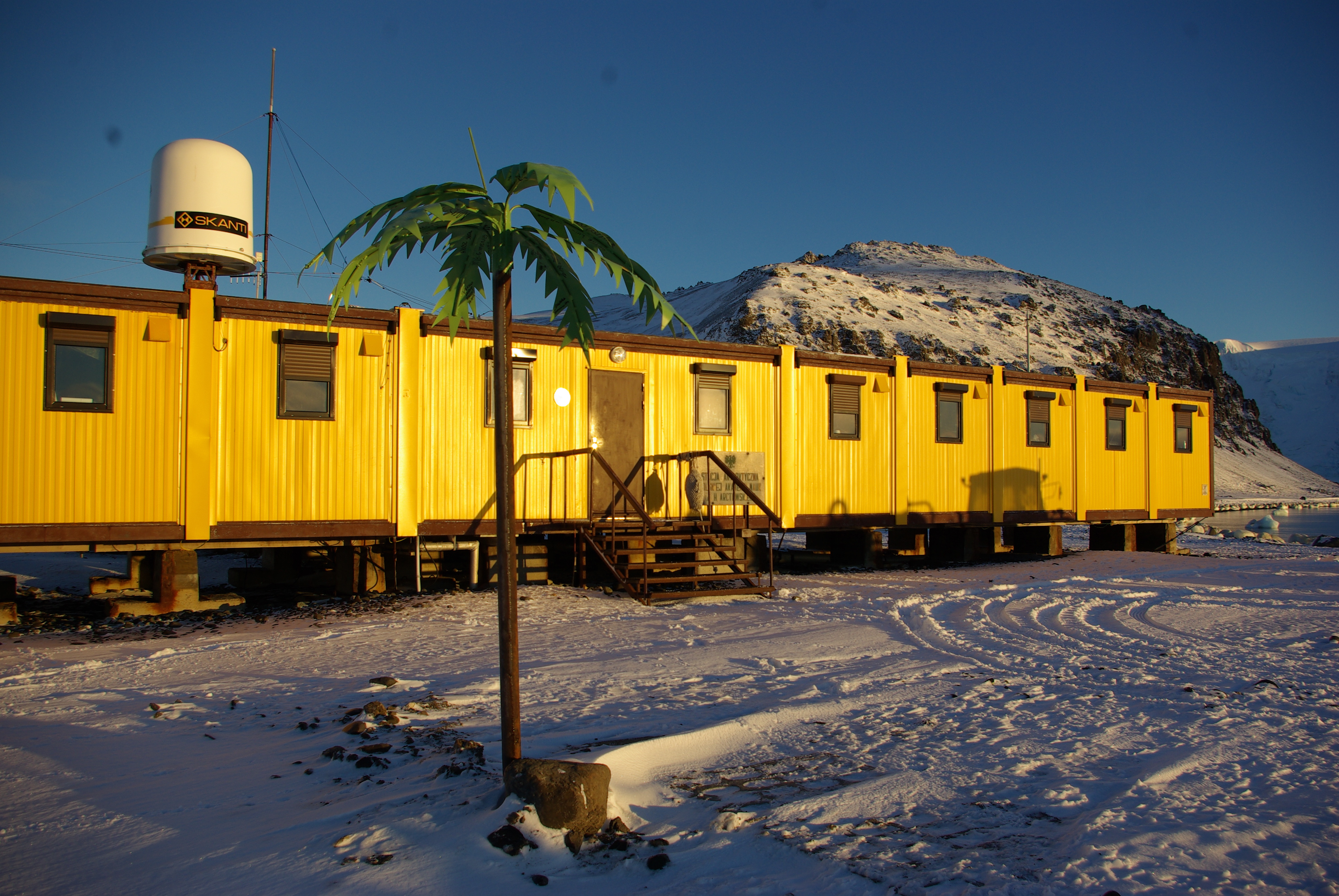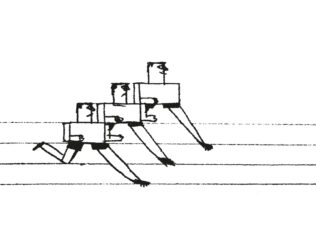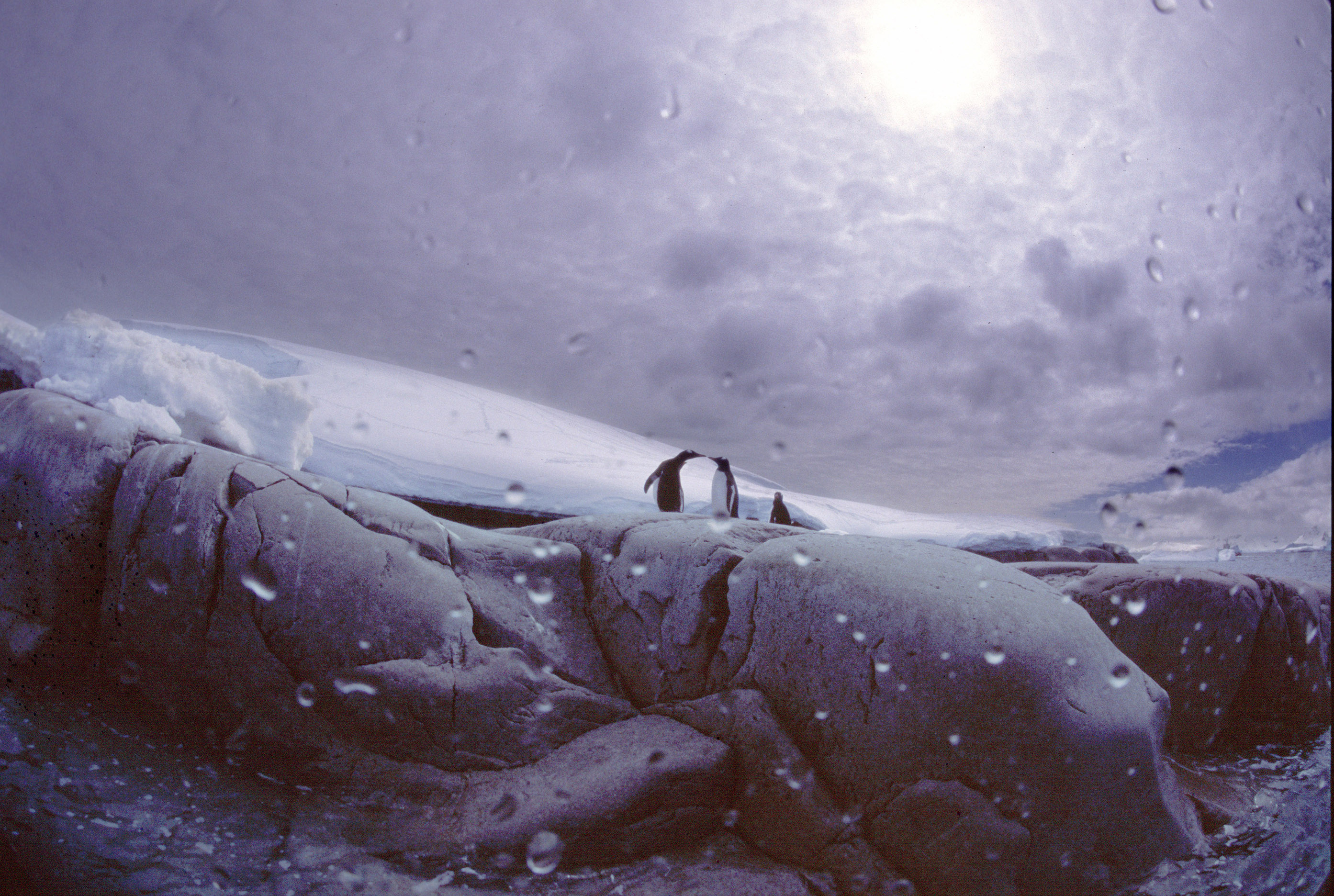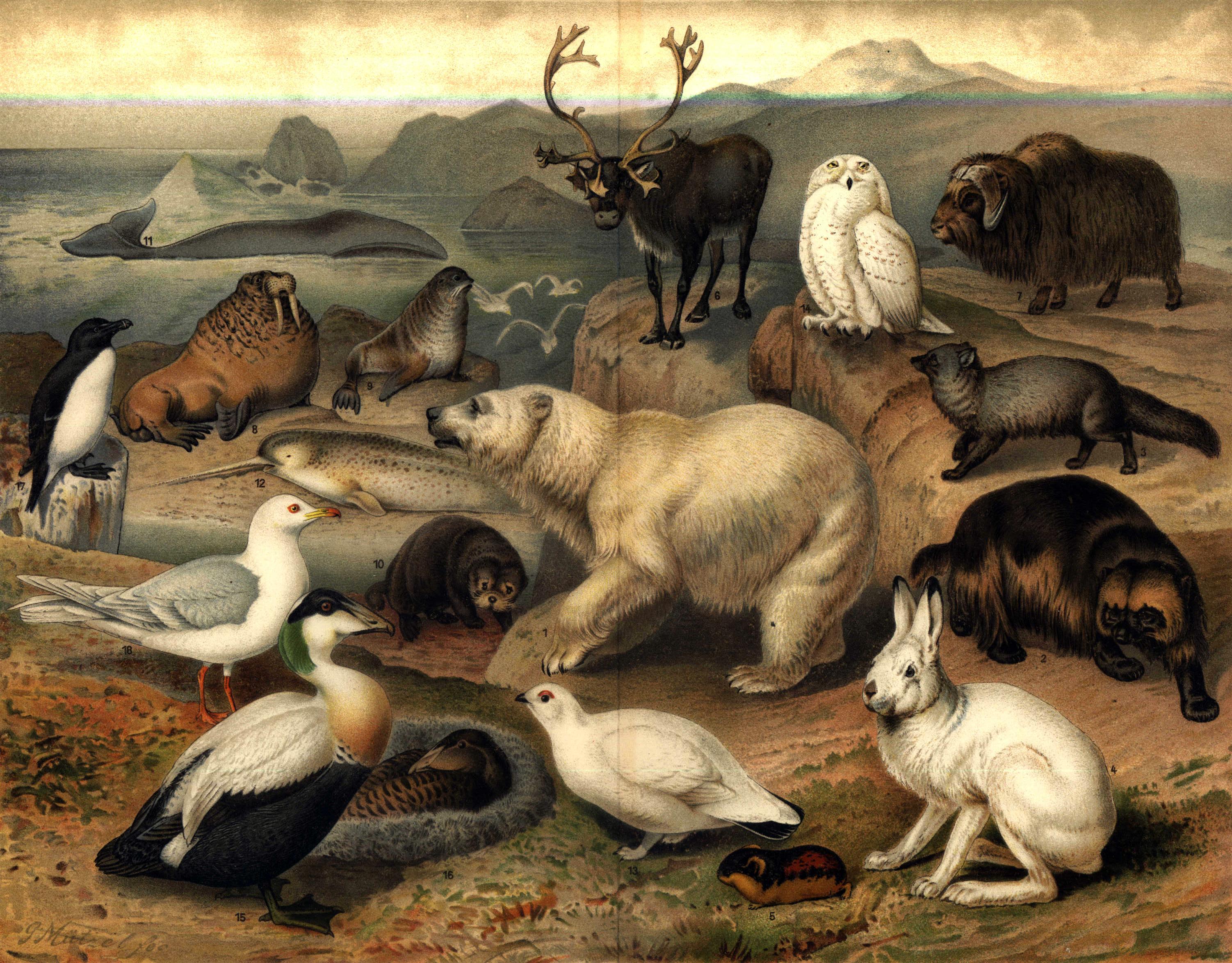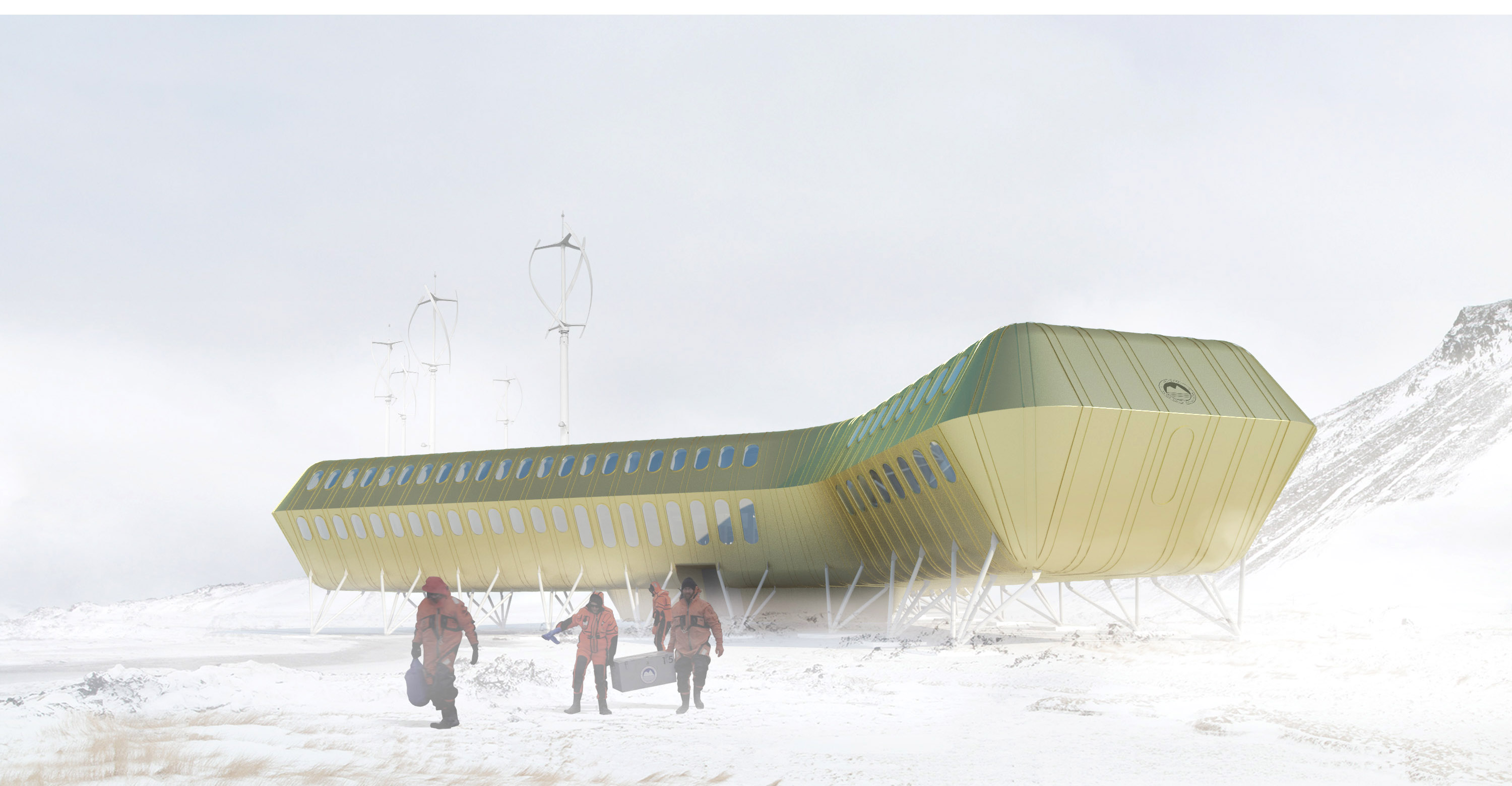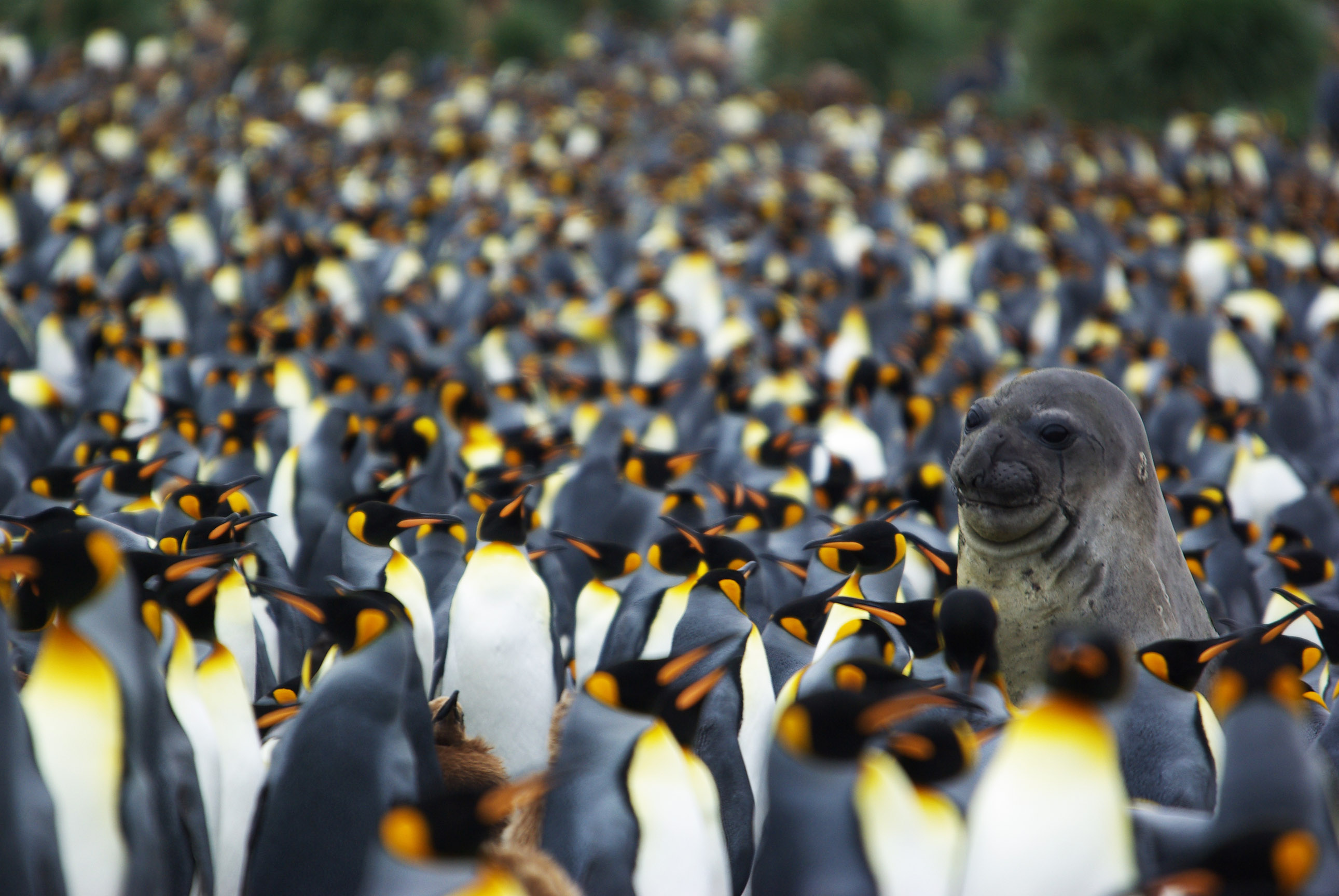
One day, our Antarctic expedition received a package containing a video cassette with the first Polish edition of Big Brother. With a concerned voice, the narrator was explaining that the participants had been locked up together for the past 90 days! We all exchanged glances; it was day 281 of our stay at the Arctowski Station.
The memory above is a story a friend told me, but it gives you a proper picture of what isolation at a polar station means to me. As for myself, I have participated in four expeditions at the Henryk Arctowski Polish Antarctic Station, including two winter-overs, or all-year expeditions.
The way it usually plays out is that in October, a ship leaves the port in Gdynia and arrives at King George Island in the South Shetlands, where Arctowski is located, after a 40-day voyage. The future winter-over staff generally participate in the entire voyage to sync as a team, but also to prepare supplies that will have to last for a long time. That’s why during the voyage, a few days are dedicated to activities like cutting up vegetables and dividing them into smaller portions for freezing, sometimes cracking eggs that are then frozen in bags, etc. The ship first makes a stop at anchor in Gothenburg to fill up on special polar fuel for power generators, and then in the Canary Islands to stock up on food and water. After crossing the Atlantic, it calls into one of the ports in Argentina, where more food supplies are loaded (including one very important thing: wine). This is also where the winter team is joined by the summer team for the final stretch to the Station. We make it to our destination at the beginning of November and the unloading starts, which usually lasts around three days. Yet if weather conditions allow it, we work around the clock. Once all the scientific equipment, food and fuel for the station are unloaded, the current winter-over staff board the ship and travel to Patagonia; from there, they take a flight back of Poland. From this moment on, the new expedition is for the most part on its own.
Summer on the Copacabana
During the summer, there are as many as 40 people at the station, so isolation is not that big of an issue. There’s a lot going on, scientific studies are intense and technical renovations are underway; we quite often have guests from other stations, and we can also visit those stations. Once in a while, ships with tourists will arrive for a visit or yachts will come, many of which visit the station on regular basis. The closest neighbours of Arctowski are three or four people living at a US field camp around six kilometres away. It is officially called the Pieter J. Lenie Station, and is separated from us by the wide tongue of the Ecology Glacier. But nobody really uses that name, because a different name given by the Brazilians stuck: Copacabana. The station is situated on a beach, in the middle of a penguin colony, while most of the personnel are women. We don’t actually see them as neighbours; rather, they’re more like our folk on the other side of the glacier. Their living conditions are rather crude, so they come visit us every Saturday to take a shower and wash their clothes, and then join us for a party on Saturday night. A large part of one of the summer houses at the Polish station has been assigned to them as the ‘American house’. We don’t even go there. But the team at the ‘Copa’ is with us during the summer only. For the entire year, our closest ‘serious’ partner is Comandante Ferraz, an all-year Brazilian station, located on the opposite shore of Admiralty Bay. Although we can’t simply walk there like we can to ‘Copa’, in good weather and when the bay isn’t overly locked in ice we can get there in a Zodiak (a rubber boat with an outboard motor) in 30 minutes. Our mutual visits are quite regular, especially if there is a national holiday in one of our countries, an anniversary of the station, or other occasions, like New Year’s Eve. So we’re not too lonely in the summer (in the Southern Hemisphere, New Year’s Day is in the middle of summer).
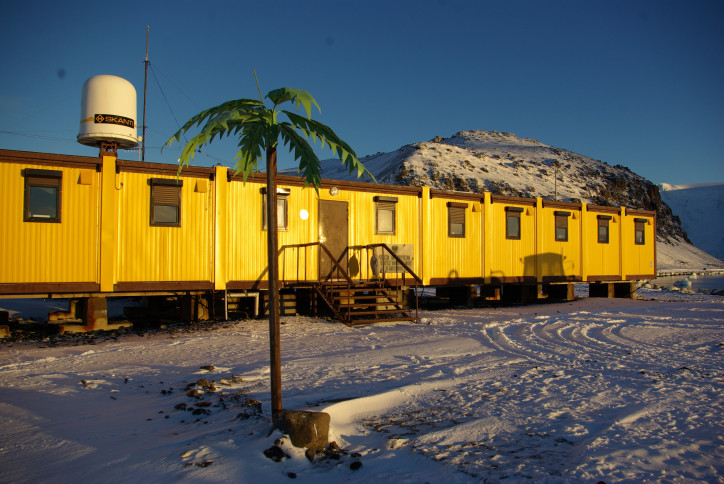
Winter is a completely different story. The summer-dwellers slowly leave the station, and Copacabana closes its doors at the end of February. Our ship arrives at the beginning of March; it is usually a leased Russian ship that brings us here and then sails the Antarctic during the season with tourists. At the end of the season, it picks up anybody leaving the station and takes them to Ushuaia in Tierra del Fuego, before returning to Saint Petersburg. Sometimes yachts will still show up at the station, but that stops too once April comes around. From this moment on, the winter dwellers are in their own company, and as winter progresses – and more and more ice appears in the bay – trips to Ferraz became increasingly difficult and usually become impossible at the beginning of June. Before the snow covers the glaciers with a thick coat, safe routes are designated so that in the winter we can go by snowmobile to the Argentinian Carlini Station, located 14 kilometres away in the next bay.
A polar expedition is no extended trip with friends. Of course, many a friendship is built there, which can last even after you return, but we really don’t know each other at the beginning. The team includes people of various age groups, from different parts of the country (or sometimes even different countries) and all walks of life. Indeed, within the few months since the expedition begins, people get to know each other and the team is increasingly integrated. But at the same time, conflicts start to crop up, which tend to inflate in a small group. Something that may have seemed a bit irritating at first (such as not saying ‘Good morning’ or ‘Hi’) could become the source of serious conflict after a few months, not to mention neglecting to do the washing up after oneself. That’s why it’s very important to clarify everything as quickly as possible and openly state what’s bothering whom, while there is still time for change.
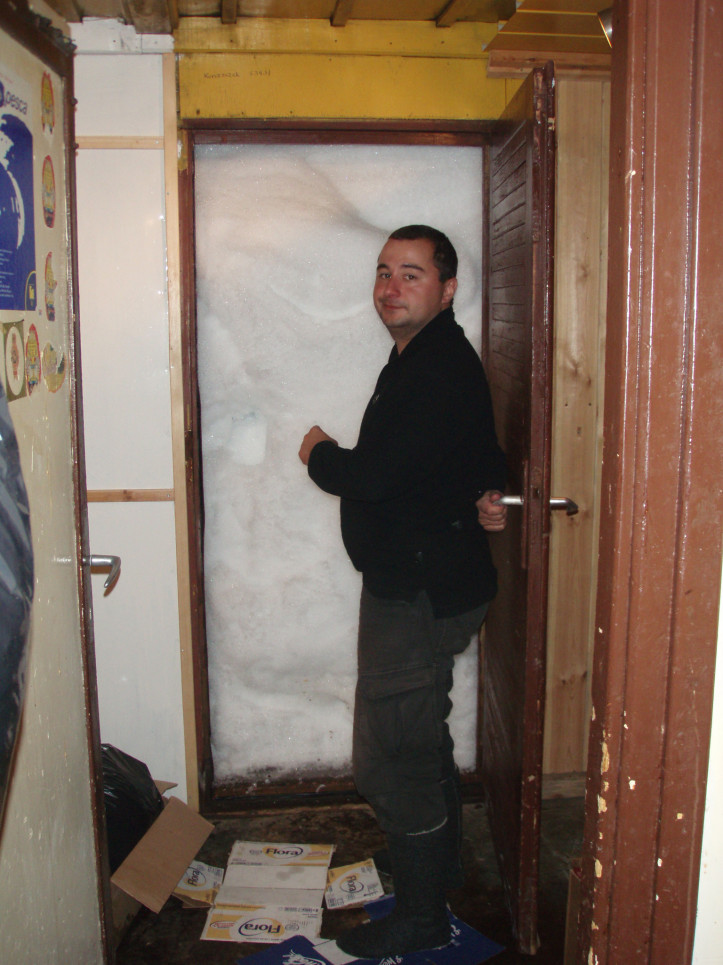
Some friction is part of the nature of our work, such as the conflicts between the scientific group and the technical staff. I experienced that during my own expeditions, and when, as a Base Commander, I spoke with leaders from other stations, they all claimed they had the same issue. It didn’t matter if they were Brazilians, South Koreans, Chinese or Russians. Scientists can be arrogant and tend to treat the technicians as their servants, always ready to help in their research work. These scientists, however, forget the fact that without the technical crowd they would simply die in just a few days, because they are the ones who keep the station up and going. On the other hand though, the technicians sometimes do not take the work of the scientists seriously, especially if collecting microscopic marine creatures distracts them from truly important tasks, like installing new piping or fixing the electrical installation. And they in turn forget that scientific research is the reason the station is there in the first place, and without those scientists, they wouldn’t be there either. So we really need each other, especially in a place that is constantly trying to kill us. It’s an important fact to remember, because we are indeed one team.
Chess is prohibited
Isolation already hit the first Antarctic winter dwellers hard – that is, members of the Belgica Expedition (1897– 1899). Although truth be told, they were asking for it. The expedition was theoretically Belgian, though their ranks included people of six different nationalities (including the Poles Henryk Arctowski and Antoni Dobrowolski), who spoke five different languages, and none of the participants spoke all of them, although some of them knew languages other than there native tongue, luckily. So not only were they not able to easily communicate with each other, but they found themselves in a situation in which nobody else had been before.
The Belgica spent the winter of 1898 imprisoned in the ice; in addition to issues with their physical health, such as an epidemic of scurvy, it was indeed the mental health of all the participants that suffered the most. One of the participants took leave of his colleagues at one point to return to Belgium on foot. Fortunately, the others were able to stop him.
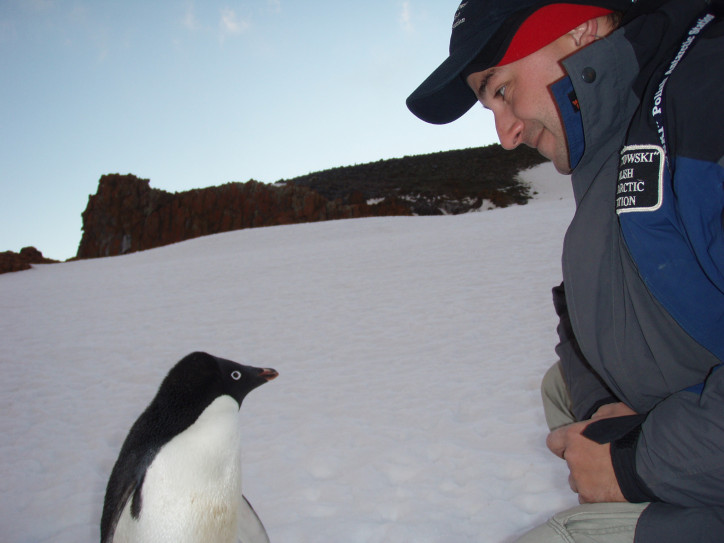
100 years ago, a similar situation occurred at Arctowski. One of my predecessors had apparently decided to row his way back to Poland. And again, his colleagues stopped him from doing so. It isn’t without reason that Ernest Shackleton is considered to be one of the best leaders in history – in a much worse situation (his ship, the HMS Endurance, was not only locked in ice in 1915, but was also eventually crushed and sunk by it), when the participants of his expedition were quite literally left on ice, he was able to keep morale high among his people. He did that by expressing concern for each and every one of them, thereby preventing mental breakdowns. The crew miraculously survived, after many hardships.
The history of discovering the Antarctic lacks the brutal stories that took place in the north, in the Arctic, where there were cases of cannibalism during a few expeditions. But this place had its share of drama as well. Demonstrating what were probably the most spectacular effects of mental issues were the events at the Soviet Vostok Station (located far away from any other station) in 1959. Two winter dwellers were playing chess, but they started to argue, and one player killed the other (or tried to kill him, the sources aren’t clear here) with an ice axe. From that time on, chess was prohibited at Soviet stations (and still is to this day at Russian stations). What’s interesting is that ice axes were not prohibited, but it’s hard to imagine surviving in the Antarctic without that useful tool.
A similar conflict came to light at the Russian Bellingshausen Station in October 2018 (I happen to know both participants in the conflict, because I regularly visit that station). One of the winter dwellers liked to read crime stories after work, while another, trying to be funny, would usually reveal the end of the novel to him. Six months later, the story reached its finale: the reader stabbed the funny guy a few times in his chest with a knife; luckily, the injuries weren’t fatal. Well, in the end you can’t really blame him, and you don’t have to be in the Antarctic to do that. But what’s very characteristic is the fact that the crime occurred at the end of the winter-over, when everybody is tired and any potential conflicts are at their peak.
Based on my own experience, as well as conversations with other polar explorers, a certain regularity surfaces that the closer you are to the anticipated end of the expedition, the greater the mental tension is and the more probable irrational behaviour becomes. In April 1984, a doctor and commander of the Argentinian Almirante Brown Station found out that he would have to stay at the station for the next winter. He really wanted to return home, so he came up with and executed a very cunning plan: he set the station on fire! All the personnel were evacuated and the arsonist indeed did go back to his country, only he ended up in jail straight away. Though the environment of the Antarctic is dangerous, sometimes much more ominous things are going on not outside, but inside people’s heads.
Polar explorers have long been going through psychological and neurological testing. At the Arctowski, Jan Terelak, who had earlier prepared the only Polish astronaut Mirosław Hermaszewski for his mission, was in charge of these tests. Most of the results of such tests appear in publications dedicated to the health of space flight participants, because there are a lot of similarities between life at a polar station and a long-term stay away from Earth: the distance from the International Space Station to the nearest shop is 400 kilometres, while from Arctowski, it’s 1000 kilometres. One phenomenon that appears both in the journals of expedition members from over a century ago, as well as in contemporary studies (and in my own memories, regretfully) is ‘psychological hibernation’. After a long stay in a monotonous social and physical environment, our cognitive capabilities, our ability to concentrate, and our memory deteriorates. Interestingly, the results of a study published in December 2019 show that the brains of polar explorers shrink during the winter-over. We don’t know whether they return to their original state later, but that explains a lot, also in my own life. In my own defence, I wish to add that my brain was clearly trying to cope with such a cognitive desert, because while I often have interesting dreams, in Antarctica they’re always feature-length films with fast-paced action, original soundtrack included. That’s how the brain tries to compensate for the stimulus deficit from the outside.
Artists of the Antarctic
In my opinion, we can speak of three levels of Polar isolation. In Antarctica, you spend a lot of time with yourself, and you need to cope with that somehow. It’s important to follow a certain routine and practise discipline when doing your job, get up at a certain time, take a shower, maintain rituals. At the same time, especially in the winter, you have a lot of free time on your hands, because there’s less work. Most of the animals swim away, the snow covers the rocks and the earth, while the day lasts only a few hours, so longer trips out are impossible. Then we maintain monitoring, meaning that at regular intervals somebody goes out to measure something on the glacier or check how many penguins or seals there currently are on land, but it doesn’t take as much time as it does in the summer. Maintenance of various installations is also routinely performed, but you don’t have the conditions to carry out any larger technical projects. So you have the perfect opportunity to read all the books you’ve always wanted to read, but never had the time to. Some people learn foreign languages, others discover talents within, which they would have probably kept hidden in any other situation. It’s really amazing how much terrible poetry and horrible paintings are created at polar stations. But these works of art are not meant to be beautiful; they appear because of the need of the creator. And that’s why I have no intention of criticizing any of them.
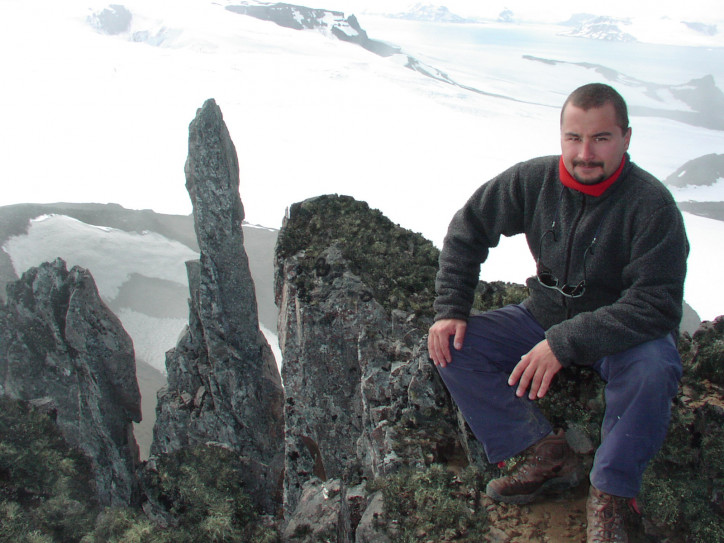
The second level of isolation is the one associated with the team at the station. We’re there together, in the same situation, left to ourselves, yet we are also aware of the fact that we can and must count on each other. That’s why patience, suppressing conflicts and clarifying misunderstandings is so important. Both my winter-overs were quite successful; given, there were conflicts, but it could have been much worse. I went through rather decent patience training as a commander, when I found out that one of ‘my’ people could quite honestly have been no further from me in terms of his views; he was a nationalist, homophobe, xenophobe, anti-feminist, etc. But at the same time, he was one of the most talented mechanics I had ever met – he made decisions quickly and worked efficiently – so early on, we realized that there’s no use in talking about anything else. He was the first person I would summon when something unexpected happened that required immediate action.
Group integration requires effort. The commander of the South Korean station told me once that whenever they take a break from working, the members of his team lock themselves up in their rooms and disappear in the internet; as a result, they practically don’t know each other. That’s why he decreed obligatory film-watching together in the evenings. I did that too. In addition, breakfast and dinner together are mandatory. Even in the winter, we comply with specific schedules of things to do. At the same time, the station supervisor possesses magical powers and can for example proclaim that Wednesday is Sunday, if a so-called damned good reason comes up. Routine is needed, but breaking from it all the more so.
Polar Olympics
Finally, we have the third level, the inter-station one. We are all in a similar situation, in spite of small differences. There are eight all-year stations operating on our island, so contacts are more lively here than anywhere else in the Antarctic. We know that in case of serious trouble, we can count on each other, even in winter. Cooperation and an array of parties help us survive. Olympic games are held every year in August on our island. Teams from all countries present trek to the largest station (the Chilean one) and compete in disciplines such as football, volleyball, basketball, table tennis and billiards. There are lots of good emotions, although the Chileans usually win everything, because they have the largest winter-over team (around 80 people), so they can pick and choose – plus they have a sports hall, billiards tables and tennis tables, so they can constantly train. But it’s great fun. Most stations in other parts of the Antarctic can’t afford such luxury and have no way of meeting anybody during the winter. We always send each other wishes for the most important of holidays, the Mid-Winter Holiday, which takes place on the day of the Winter Solstice, or on 21st June. That name always made me laugh, because it is actually the beginning of the astronomical winter in the northern hemisphere; yet indeed, from that point on, our days become longer and longer.
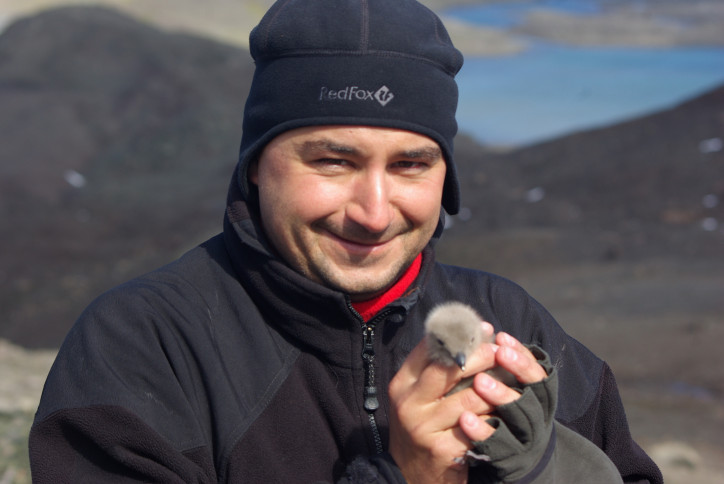
Thanks to the internet, for some time now, more and more stations (including Arctowski for the past few years) take part in an annual 48-hour film festival in August, where you have two days to create a film that includes five key elements chosen by last year’s winners. So, for example, in 2018 these were: throwing a shoe, a clock, a plumber, the sound of a fire alarm and a quote from the Terminator: “I need your clothes, boots and your motorcycle.” The stations have a very ambitious approach to the challenge, so some of these shorts are absolutely amazing – I’m very curious to see this year’s productions.
Isolation in Antarctica isn’t that bad, while the spirit of international brotherhood really gives us strength. It would really be nice if all of humanity could function like this. Not only at the end of the world. And not only in the times of the pandemic.


